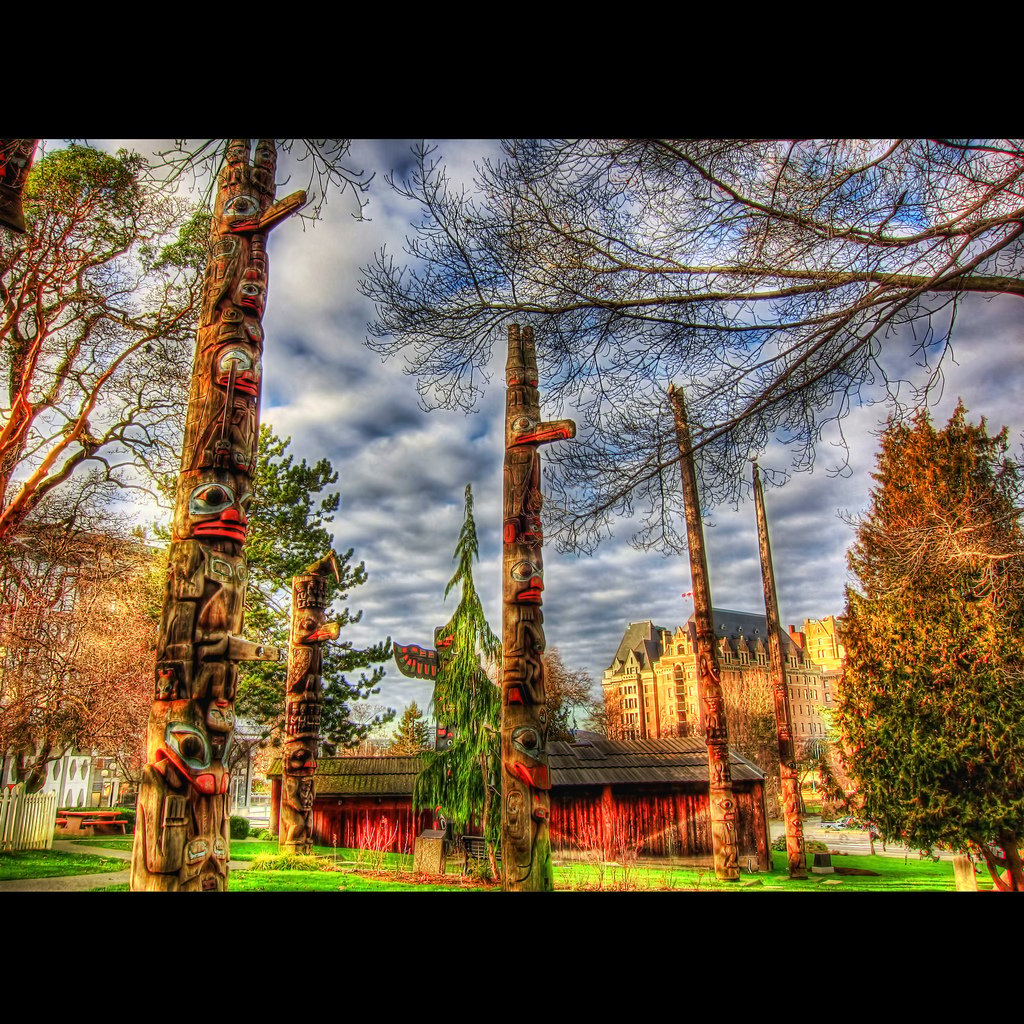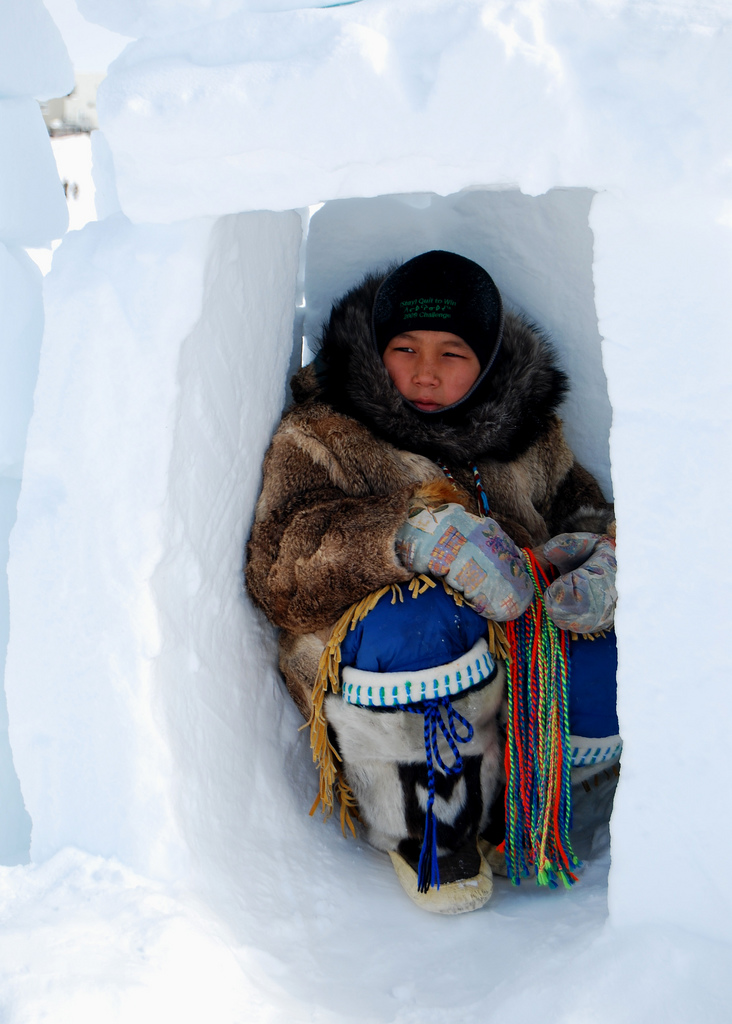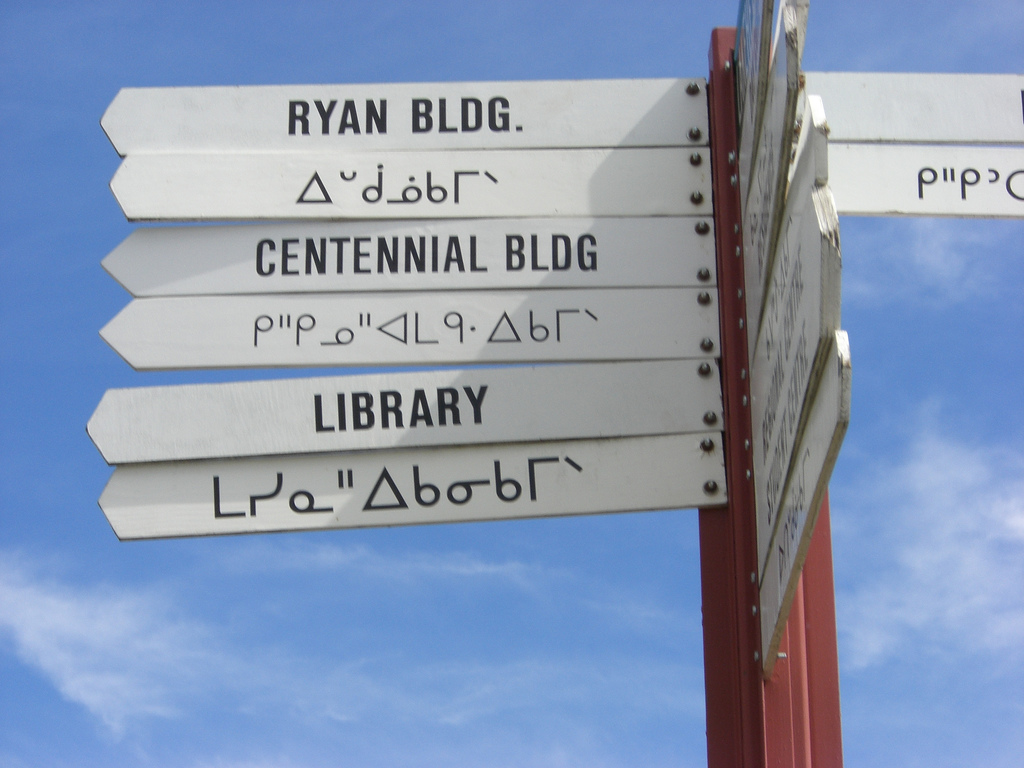Up-close on Canada: An Introduction to Aboriginal Languages
Photo via Flickr
There are over 60 Aboriginal languages in Canada. What do you know about them?
Did you know, that only a little over 200,000 people in Canada speak an Aboriginal Language as their mother tongue? You’d be hard-pressed to find many people in Canada who even know these languages exist let alone their wide variety, interesting grammatical structure, and variation across the country. Never fear! We’re here to shed a little light on the subject and learn a little more about these languages.
Most Spoken Aboriginal Language: Algonquian

Photo via Flickr
Somewhere around 144,000 people report Algonquian as their mother tongue and these people live all over Canada, from coast to coast. Algonquian speakers can also be found throughout the United States, and are not limited to any one particular group of Native peoples. Within the Algonquian language there are variations: Eastern, Plains, and Central Algonquian all exist and are all used by various speakers.
A unique feature of the Algonquian language is that it has single nouns or verbs to express feelings, actions or sentiments that are much harder to describe simply in English. For example, the Menominee people use the word paehtāwāēwesew to mean, “He is heard by higher powers.” Nouns in the Algonquian language are also classified into animate or inanimate categories, though there isn’t an obvious reason for the classification- some scholars think it may have to do with a perceived spiritual characteristic or element the noun is thought to have. The only way to really learn the classifications is through complete and total immersion in the language. And you thought masculine, feminine and neutral were hard to learn!
We can find Algonquian words in everyday English use as well. Massachusetts, Illinois, Chicago and even Ottawa are all appropriated Algonquian words that people use without even (necessarily) knowing their origin!

Photo via Flickr
Second Most-Spoken: Cree
Thought by some to be a member of the Algonquian language family, approximately 83,000 people call Cree their mother tongue in Canada. Cree has official language status in the Northwest Territories, and can be found all over Canada, from Alberta to Labrador. There are quite a few different dialects and names for the different version of Cree like Woods, Plains, Moose, and Swampy Cree.
One thing that remains pretty consistent throughout the variations in the Cree language is the non-regulated word order, so the subject, verb and object can come in many different orders in a Cree sentence. Similar to other languages (like German), Cree also uses many compound words to express a single word in English. For example, the word school could be translated as kiskinohamātowikamikw or ‘knowing-it-together-by-example-place’.
Ojibway can be found most often through central and central-western Canada, and is uniquely dialectical. The writing systems sometimes vary between dialects as well, making it a bit difficult for Ojibway language learners. You can also find Ojibway spoken in certain parts of the northern US, those closest to the Great Lakes in particular. For this reason, (all dialects can sort of understand each other) Ojibway can be considered a sort of Lingua Franca in the Great Lakes region.
Much like Ojibway, the Inuit languages spoken throughout the extremes of North America are considered to be a range of dialects, though these are not always immediately distinguishable or understood among speakers of the languages. Talk about tricky! Inuktitut has many varieties that can be found all over northern Canada. Nunavut, one of Canada’s northernmost territories, counts Inuktitut amoungst its official languages. Much like Cree in its compound word creation, Inuktitut does this with prefixes and suffixes added on to a root word to explain more complex plans and ideas. One classic example is quangatasuukuvimmuuriagakaaqtunga which means, “I”ll have to go to the airport”.
These are just some of the many native Canadian languages spoken and used in Canada today. Sadly, many people know absolutely nothing about them, their history, and their cultural significance for Native Canadians today, though perhaps now you can count yourself a little wiser!



